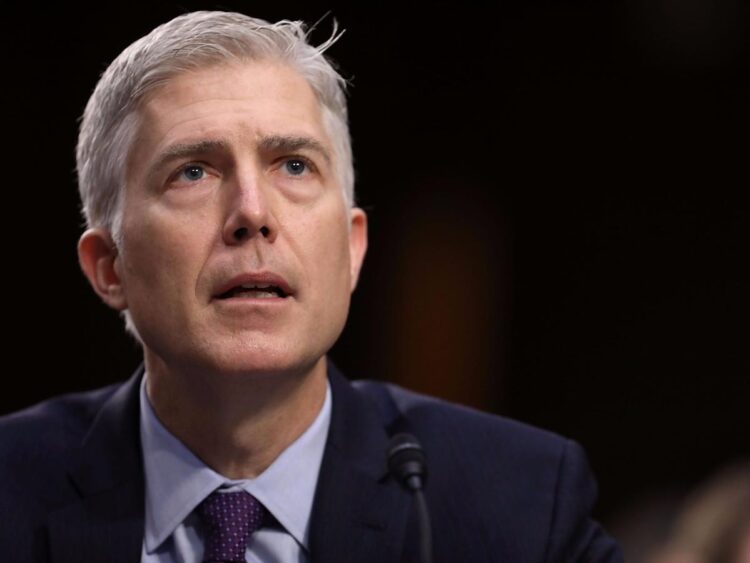
-
The Supreme Court ruled 5-4 that the US is not required to secure water for the Navajo Nation.
-
Justice Neil Gorsuch wrote an impassioned dissent comparing the plight of the Navajos to the experience of “any American who has spent time at the Department of Motor Vehicles.”
-
The Navajo “have tried it all,” he wrote. “At each turn, they have received the same answer: ‘Try again.'”
Supreme Court Justice Neil Gorsuch wrote an impassioned dissent comparing the Navajo Nation’s fight over water rights to the experience of “any American who has spent time at the Department of Motor Vehicles.”
“The Navajo have waited patiently for someone, anyone, to help them, only to be told (repeatedly) that they have been standing in the wrong line and must try another,” Gorsuch wrote.
The high court ruled 5-4 in Arizona v. Navajo Nation on Thursday that under an 1868 treaty, the US is not required secure water for the Navajo Nation.
But Gorsuch wrote in his dissent that the majority “rejects a request the Navajo Nation never made.”
Specifically, Justice Brett Kavanaugh, who delivered the majority opinion, wrote that the Navajo Nation was asking the federal government to take “affirmative steps to secure water for the Navajos,” but that the federal government wasn’t required to do so.
Gorsuch wrote, however, that “the relief the Tribe seeks is far more modest.”
The Navajo “have a simple ask: They want the United States to identify the water rights it holds for them,” he wrote. “And if the United States has misappropriated the Navajo’s water rights, the Tribe asks it to formulate a plan to stop doing so prospectively.”
Gorsuch, who was nominated by then-President Donald Trump in 2017, has a long history of ruling in favor of indigenous rights. And at 26 pages, his dissent in Arizona v. Navajo Nation was twice as long as the majority opinion.
The court’s three liberal justices — Sonia Sotomayor, Elena Kagan, and Ketanji Brown Jackson — joined Gorsuch in his dissent, while the four other conservative justices sided with the majority.
Gorsuch in his dissent underscored the Navajo Nation’s efforts to avoid taking its case to the Supreme Court.
The US “has never denied that the Navajo may have water rights in the mainstream of the Colorado River (and perhaps elsewhere) that it holds in trust for the Tribe,” Gorsuch wrote. “Instead, the government’s constant refrain is that the Navajo can have all they ask for; they just need to go somewhere else and do something else first.”
They “have tried it all. They have written federal officials. They have moved this Court to clarify the United States’ responsibilities when representing them,” he wrote. “They have sought to intervene directly in water-related litigation. And when all of those efforts were rebuffed, they brought a claim seeking to compel the United States to make good on its treaty obligations by providing an accounting of what water rights it holds on their behalf. At each turn, they have received the same answer: ‘Try again.'”
Read the original article on Business Insider
[ad_2]
Source link







